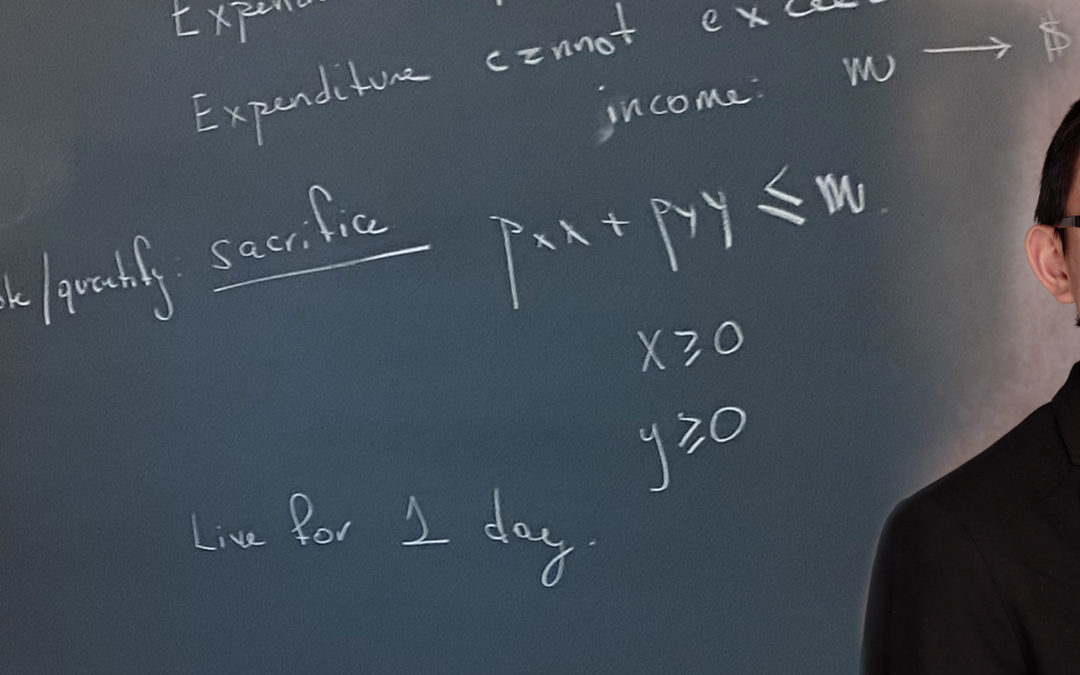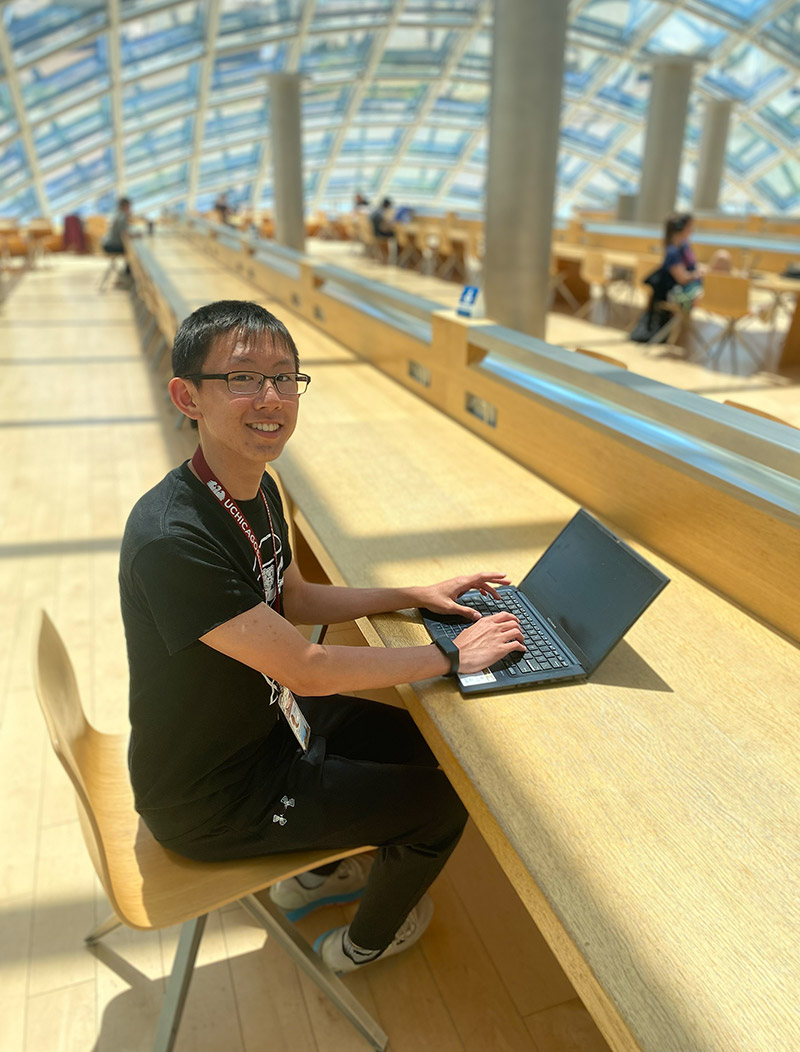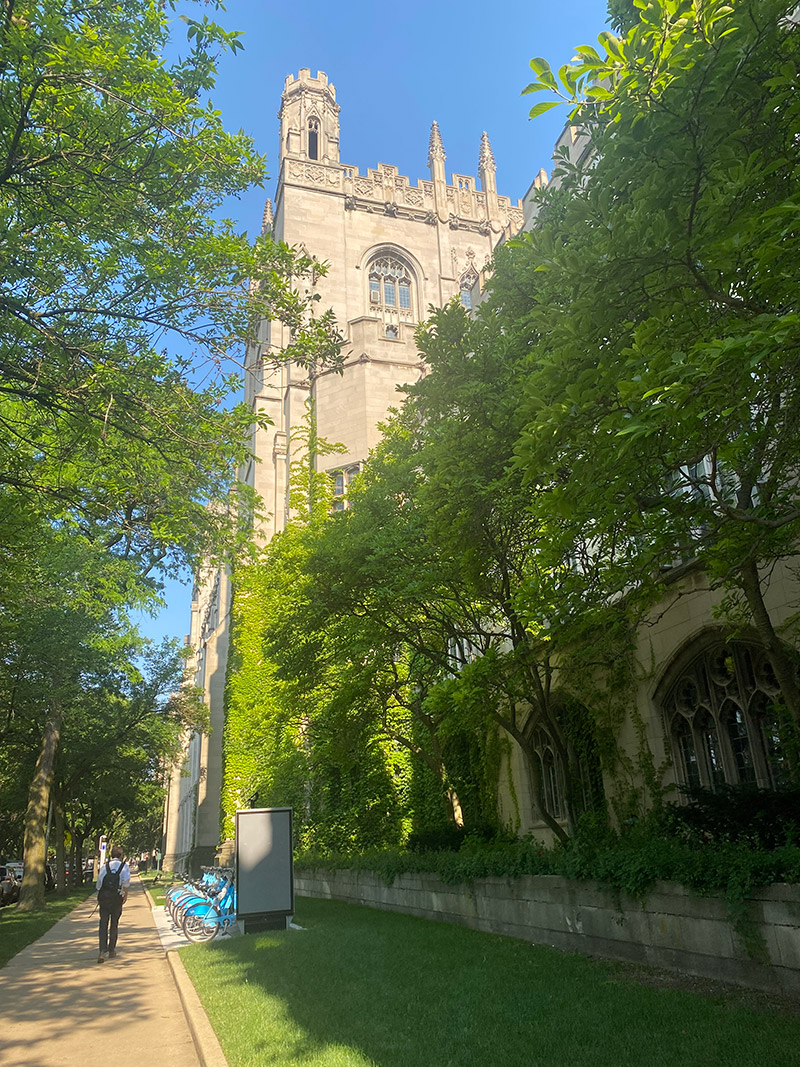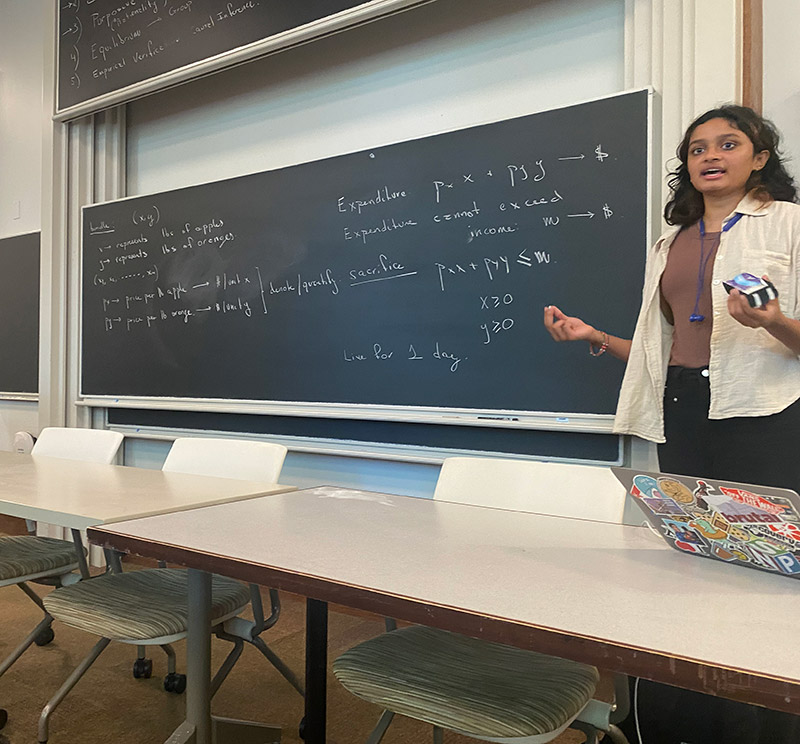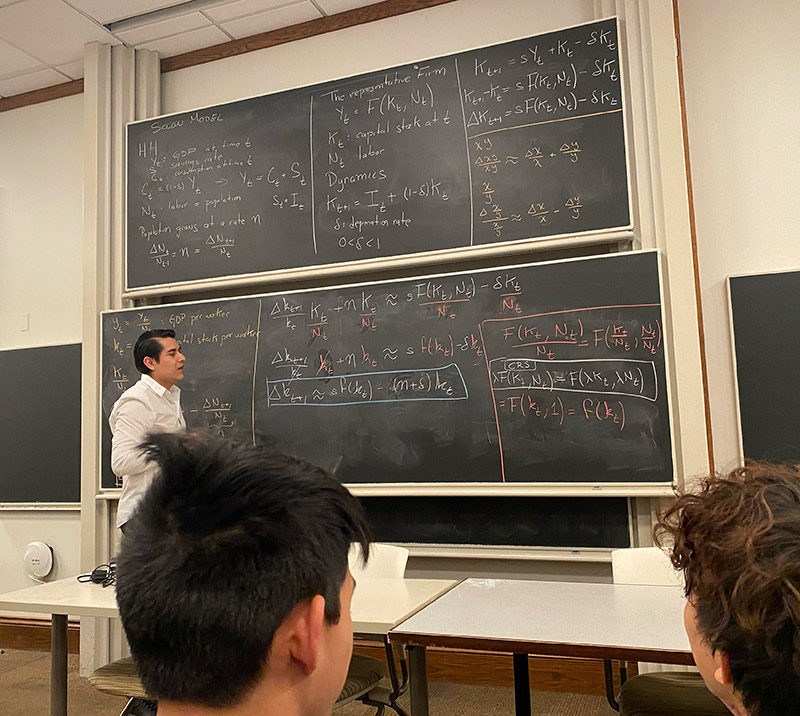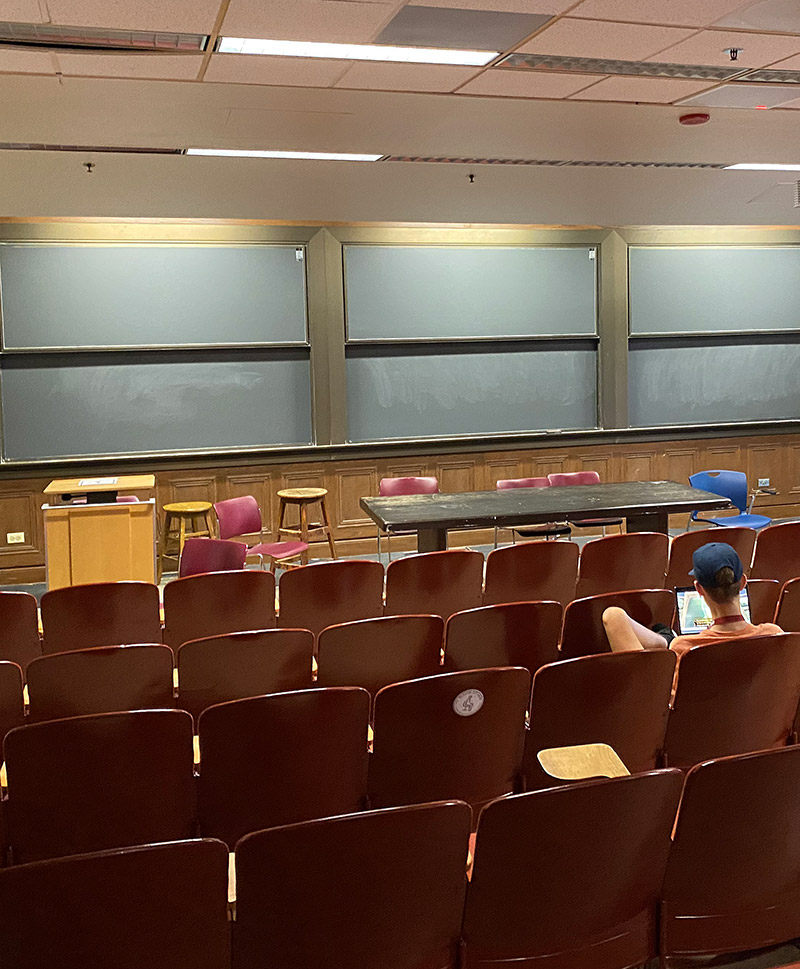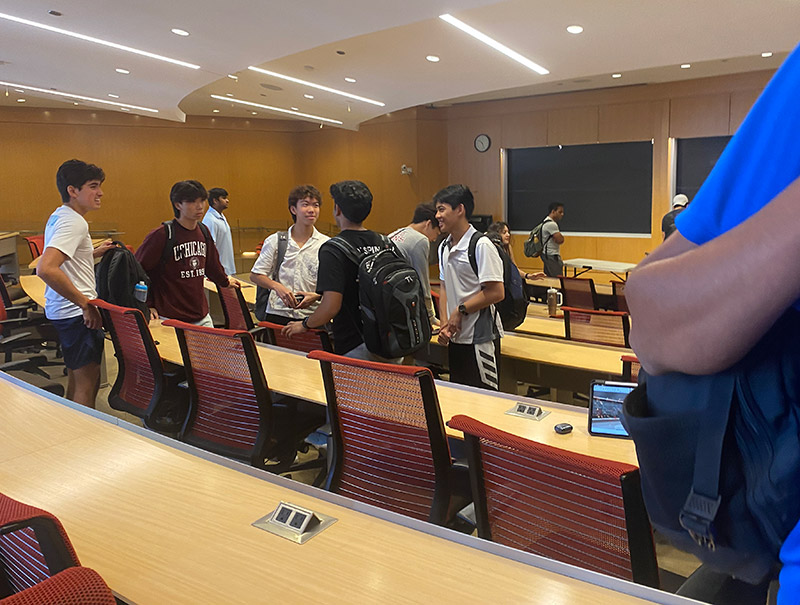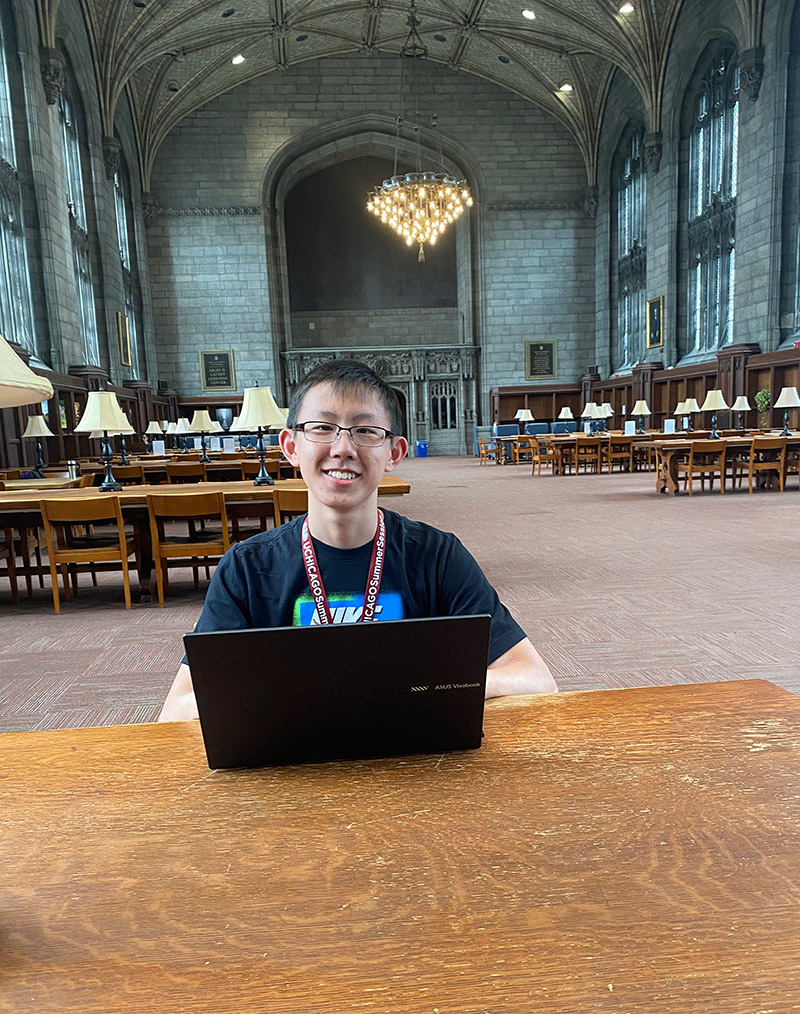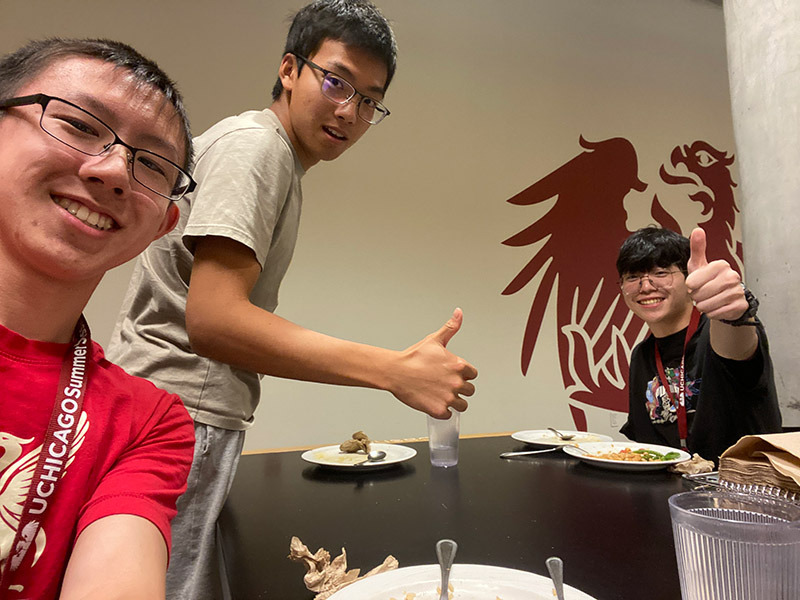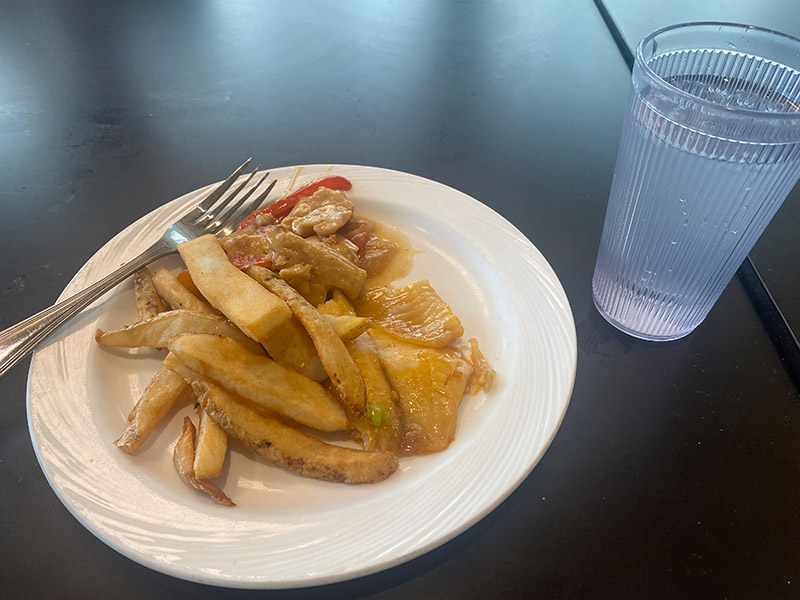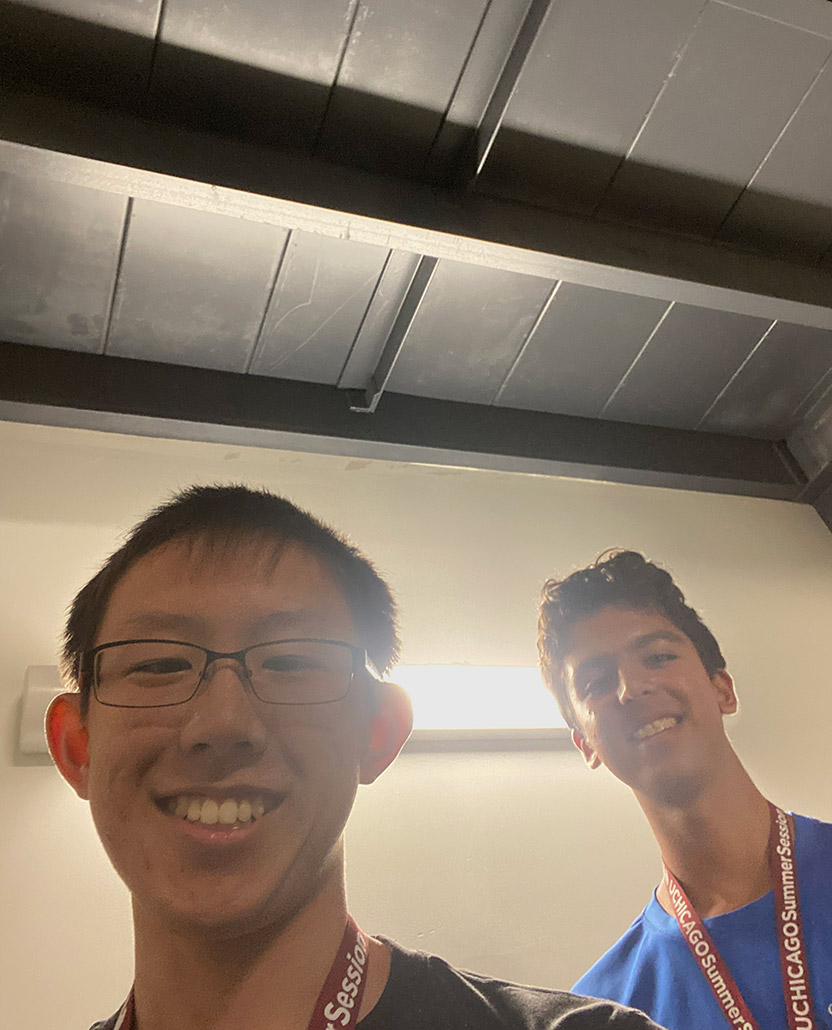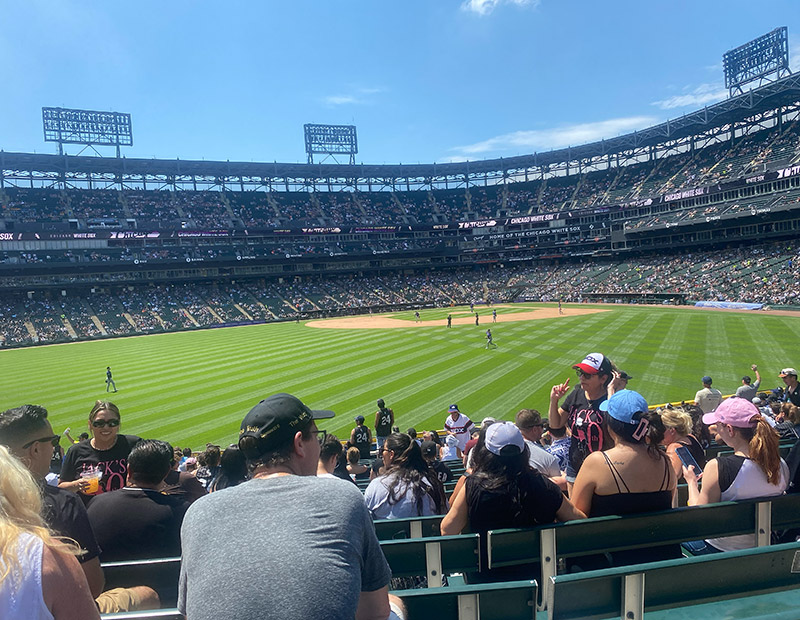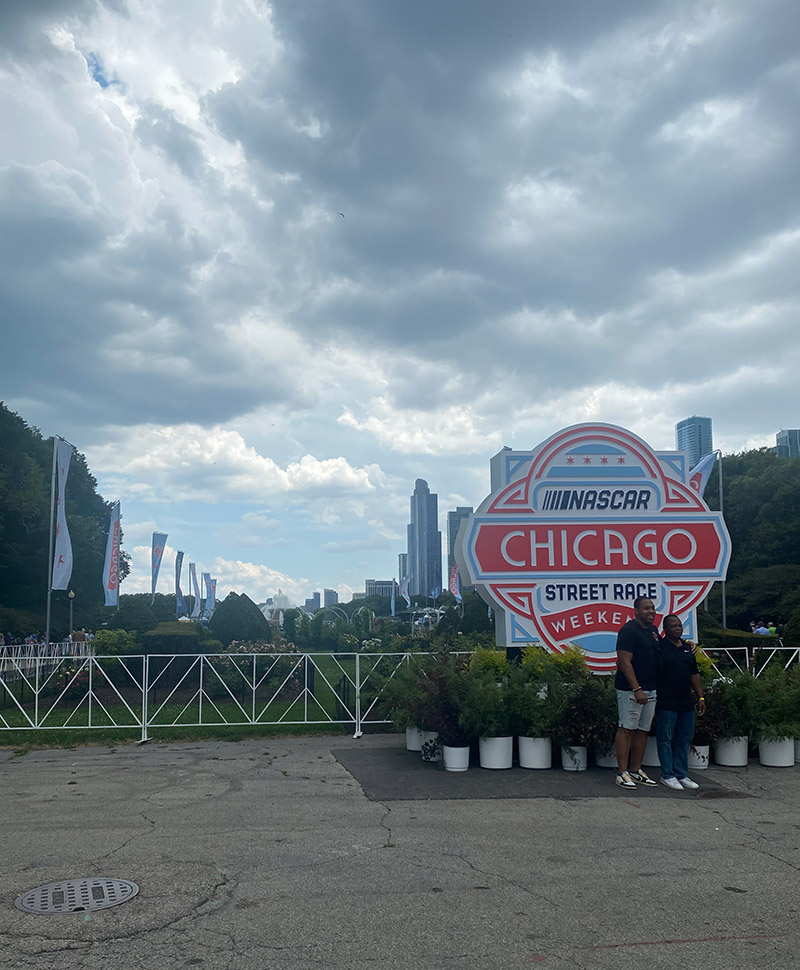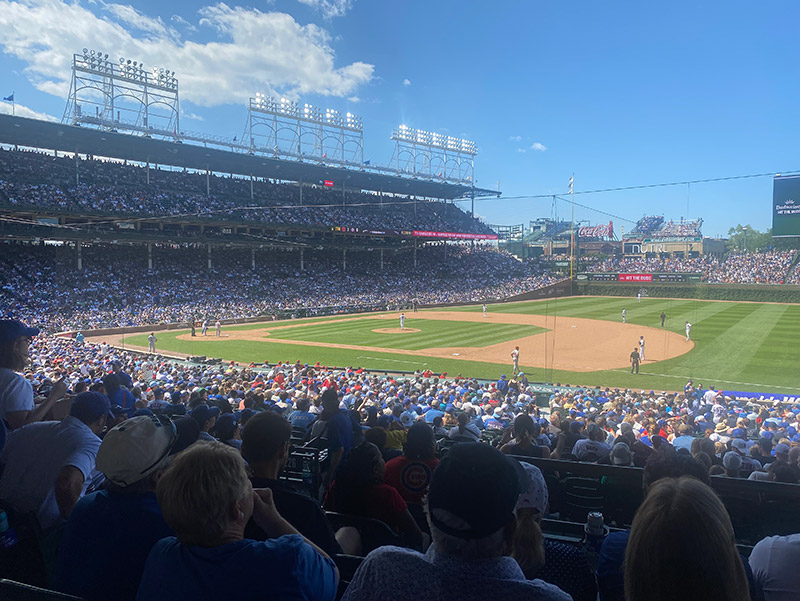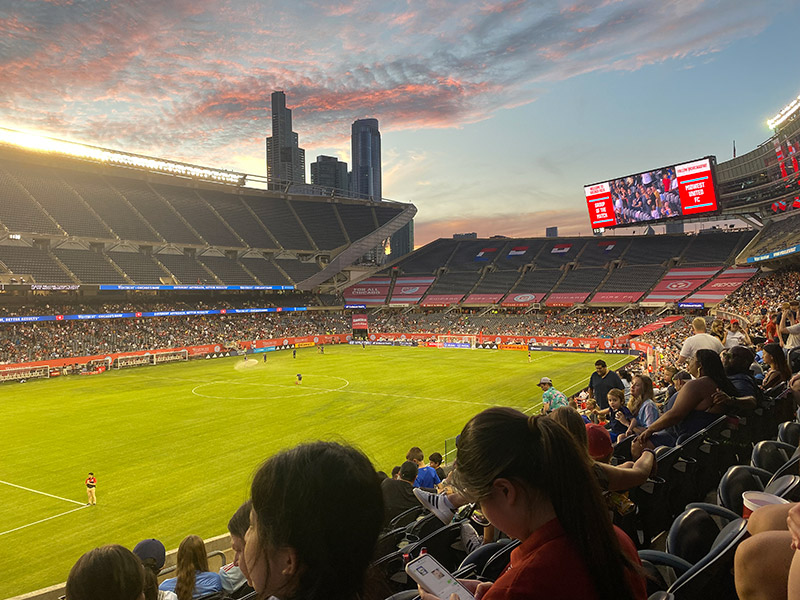Ryan Dai reports on his experience at the University of Chicago Supper Immersion Program where he is studying “Pathways in Economics.” Ryan spent his first week getting settled and adjusting to the academic environment at ChicagoU. Although challenging at first, Ryan believes that “this program will give me the foundation I need to succeed.”
Ryan says he dove “head-first” into his first lengthy and rigorous reading assignment, followed by class lectures that were more manageable. “The lectures were much more basic than the readings, so I was able to understand them thoroughly. In the lectures, professors explained the Chicago view of economics and then explained its four axioms in detail. In particular, we discussed scarcity and consumer preferences. In addition, the professors discussed economic field experiments and taught us some basic game theory,” Ryan explains.
“Work-wise, the class seems mostly reading-oriented. Based on the syllabus, this week has the lightest workload, which consisted of readings paired with one question set on microeconomics. Next week, there will be another question set, more readings, and an additional presentation to prepare,” Ryan adds.
When he was not in class or focused on his reading assignments, Ryan had an opportunity to participate in several activities. “Outside of the classroom, most of my time has been spent on the readings. Each night, the set of readings takes about 3 hours though I must take periodical breaks. After dinner, there are occasionally some activities that I partake in. This week, we decided to watch game 5 of the NBA finals together in the commons and take a group trip to Ratner Athletic Center. Our trip to Ratner was particularly nice because it allowed me to exercise with equipment for the first time this week. Over the weekend, I plan on going into the city with a group of friends, although we have not decided what we are going to do,” Ryan says.
“Over the past week, I have slowly settled in. The first few days felt unnatural because I was thrown into a new style of life in a different environment with new people. As the week progressed, I became acclimated with life in the dorms and the course load. Next week, I hope I continue building on the momentum I have now,” Ryan adds.
Week Two — Staying on Track!
Ryan reports that the work ramped up during his second week, with less time for extracurricular activities. However, Ryan developed a good work routine and is adapting well to the pace at Chicago University.
“In class, we learned about Macroeconomic concepts this week. I have a lot less background knowledge in macro, so it was more difficult to follow the professor’s lectures. In addition, we began by setting up different models of the economy. Although we learned at a fast rate and I have a lack of background knowledge, my math skills helped me stay on track. In constructing models, I gained an understanding of what was going on by interpreting what the math the professor did,” Ryan explains.
“As the week progressed, the models became more complex, but the intuition I developed helped me process them. By far, the professor’s most complex lecture came on Thursday afternoon. In his last lecture, the professor decided to teach us an application of the model which was to forecast. In an attempt to display the methods of forecasting, the professor used many advanced statistical methods that he had not learned until after graduate school. For homework, our assignment this week was also a lot more difficult than last week. This week’s assignment consisted of a lot of deriving the model, maximizing certain variables in the models, and determining the effect of changing variables in the models,” Ryan reports.
“Since I have had less free time this week, I have participated in a smaller number of activities. Most of my friends are also taking Pathways in Econ, so we are all a bit short on time. Instead of spending time going places in the evening, we just eat very extended meals together. This allows us to have a lot of fun together without cutting into too much additional time. This weekend, I will be going to a White Sox game that the program coordinated tickets for. Usually, I do not check the sign-up app often enough to catch large events, but I got lucky this time. Admittedly, I am a Cubs fan, so the game will not be too interesting. Initially, I was excited to hear the White Sox would play the Rockies because I was hoping to see former Cubs star Kris Bryant,” Ryan adds.
Week Three — Economics in the Real World.
Ryan reports that in his third week he learned about several real-world applications for macroeconomics and microeconomics. He also spent time reading and preparing for the final exam. Outside of class, Ryan had some time to participate in several activities with friends.
“In class, we briefly discussed some ways economics can be used in the real world. On Monday, a visiting professor presented his research on a theoretical market for kidneys. The two lectures on Monday were probably my favorite from the course because they applied basic ideas in an attempt to address a real-world problem. To me, there is an elegance about applying simple principles to complex problems. However, the lectures also taught me about why these amazing ideas stay theoretical and are rarely tested. In the case of an organ market, it is indeed easy and cheap to obtain enough organs, but enacting such a system is extremely complex, hence a complex problem. To some degree, I learned about some limitations of the applications. On Wednesday, we learned some basic finance concepts. The lectures were interesting, but it was a lot of information in a very short period of time. On Friday, we had a lecture about sports economics that was more of a conversation. We discussed topics such as the cost of the Olympics, how it has changed over time, and the implications of new NIL deals in the NCAA. That lecture was particularly interesting because it applied economic ideas to very common real-world problems or headlines. In the afternoon, we took our final exam. Our final exam was very similar to the problem set for the unit, although I did not receive feedback for the problem set before taking the exam,” Ryan explains.
“Outside of class, I participated in activities organized by both the program and among friends. On Wednesday of this week, the program organized us to attend a Chicago Fire game at Soldier Field. Initially, I did not have that much interest in the game. Normally, I watch a good deal of soccer, but other than Messi, the MLS is unappealing. However, since we did not have class on Thursday, I decided to attend it. Before the game, we were able to walk on the field. The game itself was very entertaining for a soccer game. The final score was 4-3 Fire, although they overcame a 1-3 half-time deficit. After the game, we were able to watch the post-game fireworks from the parking lot. Before the game on Wednesday, I was able to play basketball with a group of my friends. Unlike Wednesday, I spent the day Thursday studying and preparing to leave. No one knew what was going to be included in the test, so I went through the slides for the past 2 weeks. On Friday, I spent the evening playing ping pong and other games with my friends,” Ryan adds.
When his program ended, Ryan spent time in Chicago with his family, attended a Cubs game, watched the Nascar Xfinity Series race, and the Grant Park 165. After finally getting more comfortable with the challenging program, Ryan was sorry to see it end.
“Early in the week, I finally settled into a really good rhythm so it was a bit of a shame that the program ended,” Ryan says.
We are happy to hear that you successfully worked through the challenging material and had an enjoyable learning experience at Chicago University. Good job, Ryan!

